Search
Did you mean: Shinto?
Search Results
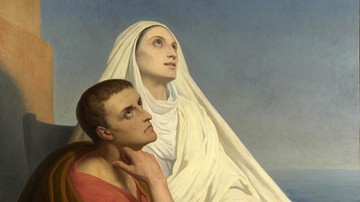
Image
Saints Augustine and Monica
Saints Augustine and Monica, oil on canvas painting by Ary Scheffer, 1854.
National Gallery, London.

Image
Saints Peter and Paul, from a Catacomb Etching
St. Peter and St. Paul etching containing a Chi-Rho
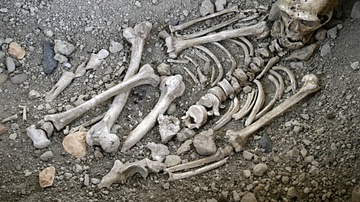
Image
Neanderthal Burial, La Chapelle-aux-Saints (reconstruction)
Reconstruction of the Neanderthal burial at La Chapelle-aux-Saints, France, on display at Musée de La Chapelle-aux-Saints, Corrèze, France.

Image
Wall-painting of Martyred Saints from Wadi Sarga
Three separate elements were painted upon the wall of a structure near the monastic complex of Wadi Sarga. The central scene, executed in red outline, depicts the saints Ananias, Azarias, and Misael, known as the "three children in the furnace"...
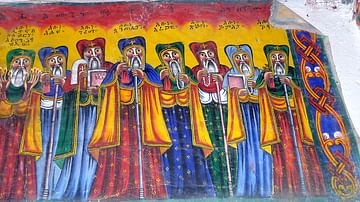
Image
Ethiopian Icon of the Nine Saints
Ethiopian icon featuring the Nine Saints, nine missionaries who are considered instrumental in spreading Christianity to the Kingdom of Axum.
Abba Pentalewon Monastery, near Axum, Ethiopia.
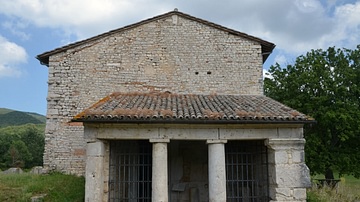
Image
Church of Saints Cosma and Damiano in Carsulae, Italy
The early Christian church of Saints Cosma and Damiano at Carsulae (Italy) was built in the 11th century CE, reusing an existing Roman building. The original Roman building dates to the 1st or early 2nd century CE.

Image
Martyrdom of Saints Cosmas and Damian
Martyrdom of Saints Cosmas and Damian, oil on canvas painting by Antonio Balestra, 1718.
Abbey of Santa Giustina, Padua.
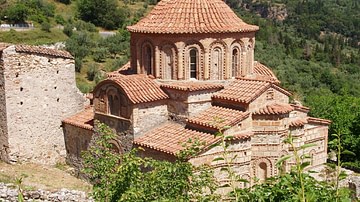
Image
Church of Saints Theodores, Mystras
Mystras in southern Greece was the provincial capital of the Byzantine Despotate of the Morea from the 13th through the 15th centuries CE. It was primarily known for its churches, which, with the exception of the occasional added belfry...
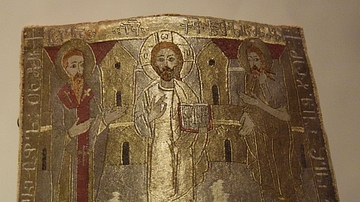
Image
Georgian Liturgical Cuff with Jesus and Saints
This Georgian liturgical cuff dates from 1648 CE and is called "epimanikia" in Greek. It is the liturgical vestments of the Eastern Orthodox Church and Eastern Catholic Churches. They are typically made of flax, silk fabric, gold and silk...
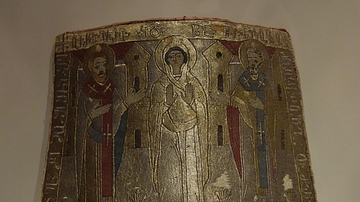
Image
Georgian Liturgical Cuff with Mary and Saints
This Georgian liturgical cuff dates from 1648 CE and is called "epimanikia" in Greek. It is the liturgical vestment of the Eastern Orthodox Church and Eastern Catholic Churches. They are typically made of flax, silk fabric, gold and silk...